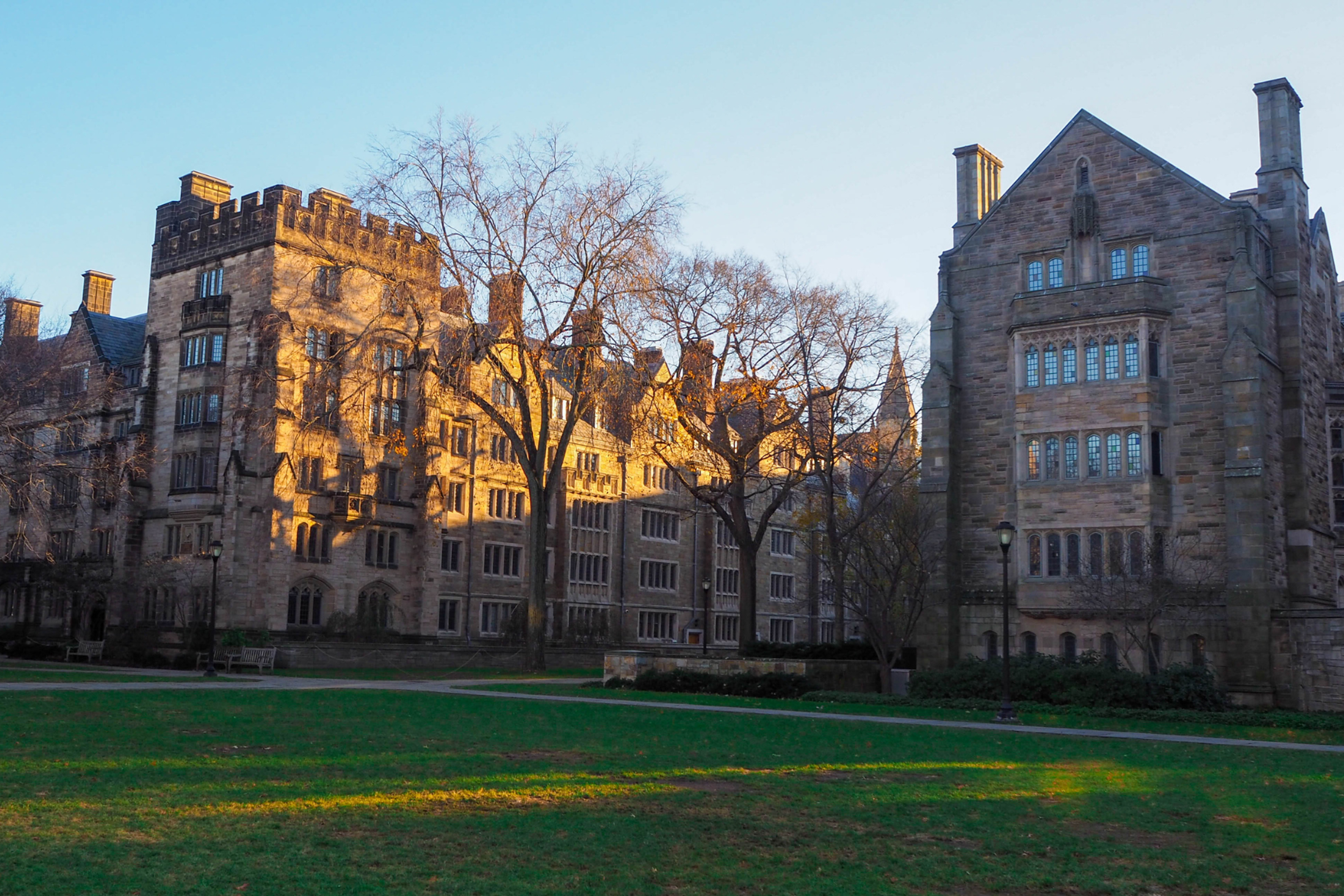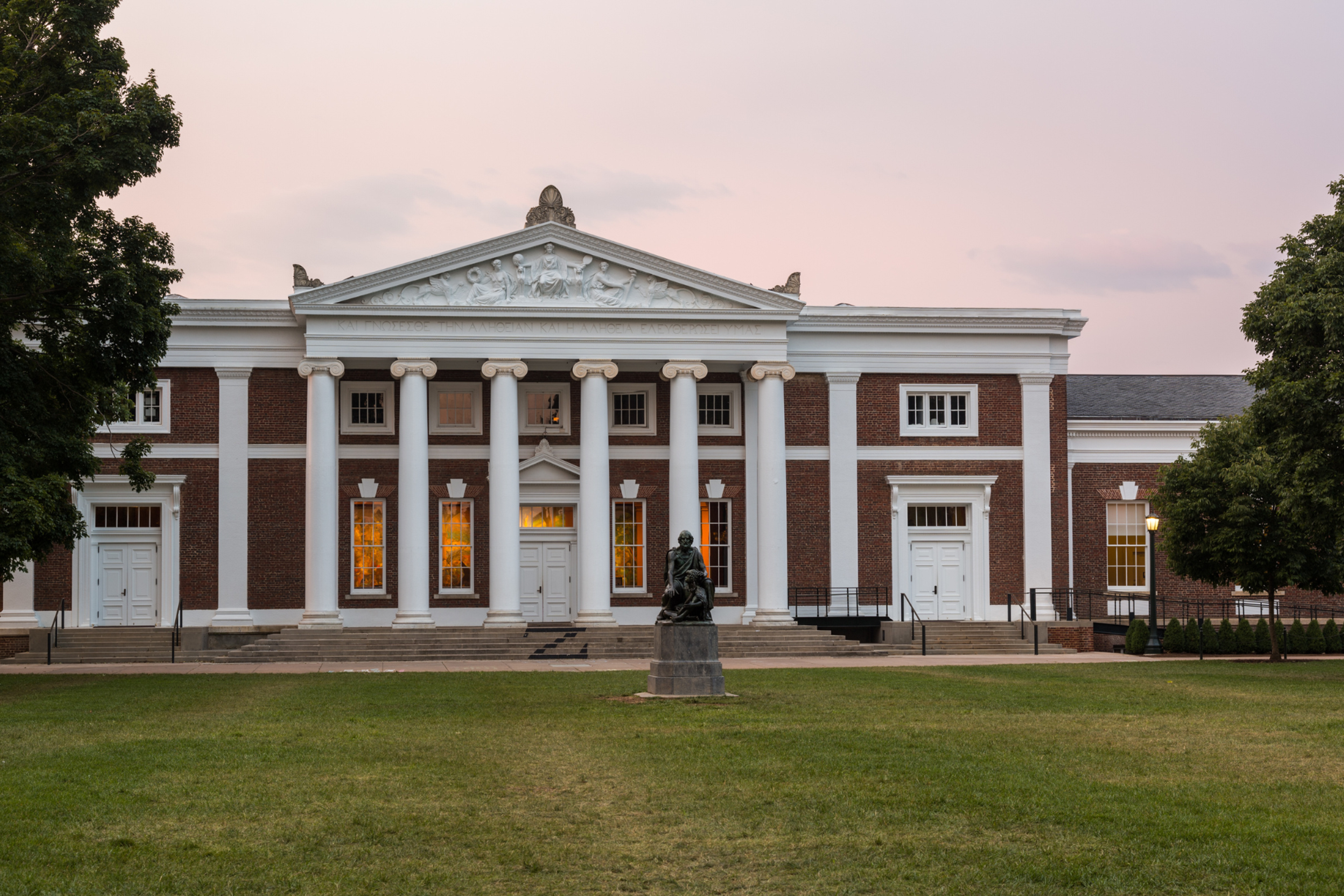
Table of Contents
Free Event

Featuring Melanie E.
How to Get a Head Start on Your MBA Application
Starting Wednesday, April 16
10:00 PM UTC · 60 minutes

Featuring Melanie E.
New England is home to some of the best MBA programs in the United States. If you're considering pursuing an MBA degree, this region offers a variety of prestigious business schools that can help you achieve your career goals. In this article, we will provide an overview of the top MBA programs in New England, discuss the application process, and answer some frequently asked questions about business schools in the region. Whether you're a local resident or considering relocating to New England, this guide will help you navigate the MBA landscape and make an informed decision.
Intro to MBA Programs and the Business School Landscape in New England
MBA programs are designed to equip students with the knowledge, skills, and networks necessary to advance their careers in the business world. New England boasts a thriving business school landscape, with renowned institutions offering a wide range of MBA specializations, from finance and marketing to entrepreneurship and healthcare management.
Harvard Business School, located in Boston, is consistently ranked as one of the top MBA programs in the world. Its rigorous curriculum and prestigious faculty attract talented students from across the globe. Students at Harvard Business School have the opportunity to learn from industry leaders, participate in case studies, and engage in experiential learning projects. The school's strong alumni network also provides valuable connections and mentorship opportunities for students.
MIT Sloan School of Management, another prominent institution in the region, is known for its emphasis on innovation and technology. The school offers a diverse range of MBA programs, including tracks in entrepreneurship, operations management, and global business. Students at MIT Sloan benefit from the school's close ties to the technology industry and have access to cutting-edge research and resources.
Yale School of Management, located in New Haven, Connecticut, is renowned for its integrated curriculum that combines business education with a broader understanding of society and its challenges. The school's unique approach to management education prepares students to become leaders who can drive positive change in their organizations and communities. Yale School of Management also offers a number of joint-degree programs, allowing students to combine their MBA studies with other disciplines such as law, public health, or environmental management.
Tuck School of Business at Dartmouth College, situated in Hanover, New Hampshire, is known for its close-knit community and collaborative learning environment. The school's small class size fosters strong relationships among students and faculty, creating a supportive and engaging educational experience. Tuck's rigorous core curriculum provides a solid foundation in business fundamentals, while its elective courses allow students to tailor their MBA experience to their individual interests and career goals.
In addition to these well-known schools, New England is also home to a number of smaller, highly specialized programs that cater to specific industries or career paths. These programs may offer unique opportunities for students looking to pursue niche fields, such as sustainability or social entrepreneurship. For example, the Boston University Questrom School of Business offers an MBA in Social Impact, which prepares students to tackle social and environmental challenges through business innovation and leadership.
Another notable program is the Babson College F.W. Olin Graduate School of Business, which is known for its focus on entrepreneurship. Babson's MBA program provides students with the skills and mindset needed to start and grow successful businesses. The school's Entrepreneurship Center offers a wide range of resources, including mentorship programs, networking events, and funding opportunities, to support students in their entrepreneurial endeavors.
Overall, the business school landscape in New England offers a rich and diverse array of MBA programs, each with its own unique strengths and opportunities. Whether students are interested in traditional business disciplines or emerging fields, they can find a program in the region that aligns with their goals and aspirations.
5 Things to Know About Applying to MBA Programs in New England
The application process for MBA programs in New England can be highly competitive, with a limited number of spots available each year. Here are some key factors to consider when applying:
- Academic Credentials: Business schools typically require applicants to have a strong undergraduate academic record. A high GPA and a competitive GMAT or GRE score are often prerequisites for admission.
- Work Experience: Most MBA programs prefer candidates with relevant work experience. The number of years of work experience required can vary depending on the school and program.
- Personal Statement: A well-written personal statement can greatly enhance your chances of admission. Use this opportunity to highlight your strengths, career goals, and why you believe the specific MBA program is the right fit for you.
- Letters of Recommendation: Strong letters of recommendation from individuals who can speak to your professional abilities and potential for success in an MBA program are crucial.
- Interview: Some MBA programs may require an interview as part of the application process. Prepare for the interview by researching the school and practicing common interview questions.
When it comes to applying to MBA programs in New England, it's important to understand the competitive nature of the process. With a limited number of spots available each year, it's crucial to stand out from the crowd. One of the key factors that admissions committees consider is your academic credentials. Business schools typically require applicants to have a strong undergraduate academic record, including a high GPA. Additionally, a competitive GMAT or GRE score is often a prerequisite for admission. These academic indicators help demonstrate your ability to handle the rigorous coursework of an MBA program.
Another important factor that MBA programs in New England consider is your work experience. Most programs prefer candidates with relevant work experience, as it demonstrates your ability to apply theoretical knowledge to real-world situations. The number of years of work experience required can vary depending on the school and program. Some programs may require a minimum of two to three years, while others may prefer candidates with five or more years of experience. It's important to research the specific requirements of each program you're interested in to ensure you meet the necessary criteria.
In addition to academic credentials and work experience, your personal statement plays a crucial role in the MBA application process. This is your opportunity to showcase your strengths, career goals, and why you believe the specific MBA program is the right fit for you. Admissions committees are looking for candidates who have a clear vision for their future and can articulate how the program will help them achieve their goals. Take the time to craft a well-written personal statement that highlights your unique qualities and demonstrates your passion for business.
Strong letters of recommendation are also a critical component of your MBA application. These letters should come from individuals who can speak to your professional abilities and potential for success in an MBA program. Choose recommenders who know you well and can provide specific examples of your skills and accomplishments. It's important to give your recommenders ample time to write the letters and provide them with any necessary information to help them craft strong and compelling recommendations.
Lastly, some MBA programs may require an interview as part of the application process. This is an opportunity for the admissions committee to get to know you better and assess your fit for the program. It's essential to prepare for the interview by researching the school and understanding its values, culture, and curriculum. Practice common interview questions and think about how you can effectively communicate your experiences, goals, and motivations.
Overall, applying to MBA programs in New England requires careful consideration and preparation. By understanding the key factors that admissions committees consider, such as academic credentials, work experience, personal statements, letters of recommendation, and interviews, you can increase your chances of securing a spot in your desired program.
Top 10 MBA Programs in New England: Overview, Reasoning, and Application
- Harvard Business School: Harvard offers a rigorous two-year MBA program that emphasizes case-based learning and leadership development. Its extensive alumni network and reputation for excellence make it a top choice for aspiring business professionals.
- MIT Sloan School of Management: Known for its focus on innovation and technology, MIT Sloan offers a unique combination of rigorous coursework and real-world experiential learning opportunities.
- Yale School of Management: Yale's MBA program emphasizes the integration of business and society, preparing students to make a positive impact in nonprofit, government, and entrepreneurial ventures.
- Tuck School of Business at Dartmouth College: Tuck's small class size fosters a close-knit community and collaborative learning environment. The school's emphasis on teamwork and ethical leadership sets it apart.
- University of Connecticut School of Business: UConn's MBA program offers a flexible curriculum that can be personalized to fit students' career goals. The school's strong ties to the business community provide abundant networking opportunities.
- Boston College Carroll School of Management: Carroll's MBA program combines a rigorous curriculum with a focus on ethical leadership and social responsibility.
- Bentley University Graduate School of Business: Bentley's MBA program offers a blend of practical business skills and cutting-edge technology, preparing students for success in today's rapidly changing business landscape.
- Brandeis International Business School: With a global perspective and a strong emphasis on experiential learning, Brandeis prepares students for leadership roles in international business and finance.
- Babson College F.W. Olin Graduate School of Business: Babson is widely known for its entrepreneurship programs, offering students the necessary skills and mindset to start their own businesses.
- University of Massachusetts Amherst Isenberg School of Management: Isenberg's MBA program focuses on innovation and business analytics, equipping students with the tools to succeed in a data-driven world.
Each of these MBA programs has its own unique strengths and opportunities. It's important to research and evaluate them based on your personal career goals, interests, and desired learning environment.
Business School in New England: FAQs and Answers
Here are answers to some frequently asked questions about business schools in New England:
Q: How long does it take to complete an MBA program?
A: Most full-time MBA programs in New England require two years of study. However, there are also part-time and executive MBA programs that cater to working professionals, allowing for a more flexible timeline.
Q: Are there scholarships or financial aid available for MBA programs?
A: Many MBA programs offer scholarships and financial aid options. It's important to research each school's financial aid resources and application deadlines.
Q: Can I pursue an MBA degree while working full-time?
A: Some MBA programs offer part-time or online options that allow students to balance work and studies. However, it's important to consider the time commitment and ensure that you can manage both effectively.
Q: What career opportunities are available for MBA graduates in New England?
A: New England is a hub for various industries, including finance, technology, healthcare, and entrepreneurship. MBA graduates from reputable programs in the region have access to a wide range of career opportunities and extensive professional networks.
With this comprehensive guide to the best MBA programs in New England, you're now equipped with the information you need to chart your path to success. Remember to thoroughly research each program, visit campuses if possible, and reach out to current students and alumni to gather firsthand insights. Best of luck on your MBA journey!
Read these next: The Best MBA Programs in Massachusetts and The Best MBA Programs in Boston


















